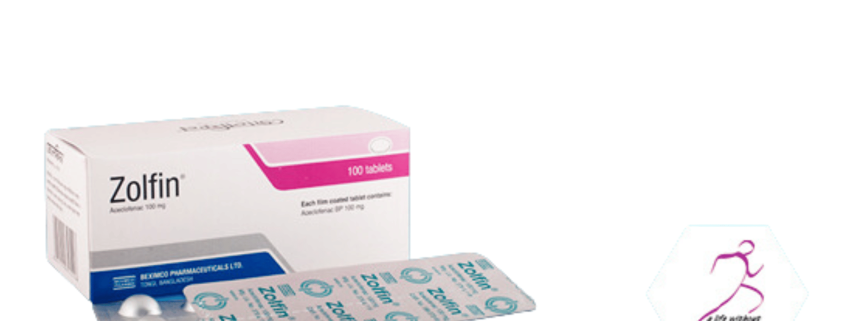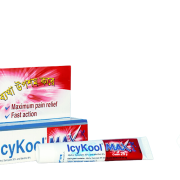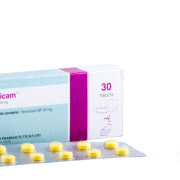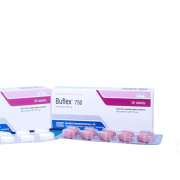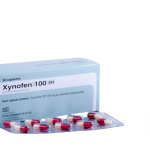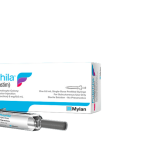Zolfin
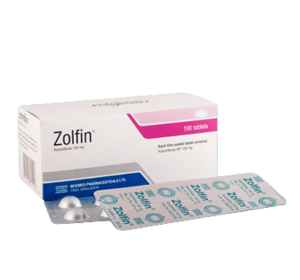
Generic Name: Aceclofenac
Dosage Form: Tablet
TG Name: Musculoskeletal
1. What Zolfin® is and what it is used for?
Zolfin® contains Aceclofenac which is a non-steroidal agent with marked anti-inflammatory and analgesic properties. The mode of action of Aceclofenac is largely based on the inhibition of prostaglandin synthesis. Aceclofenac is a potent inhibitor of the enzyme cyclooxygenase, which is involved in the production of prostaglandins.
Zolfin® is indicated for the relief of pain and inflammation in both acute and chronic conditions like osteoarthritis, rheumatoid arthritis, ankylosing spondylitis, dental pain, gynaecological pain, low back pain etc.
2. Before you take Zolfin®
Do not take this medicine and tell your doctor if:
Patients with mild renal or cardiac impairment and the elderly should be kept under surveillance, since the use of NSAIDs may result in deterioration of renal function.
Aceclofenac may reversibly inhibit platelet aggregation
Take special care with Zolfin®
Check with your doctor before taking this medicine if:
Zolfin® should not be administered to patients with active or suspected peptic ulcer or gastrointestinal bleeding, and in patients with moderate to severe renal impairment. It should not be prescribed during pregnancy, unless there are compelling reasons for doing so. In this situation the lowest effective dosage should be used. Aceclofenac should not be administered to patients hypersensitive to the drug or in whom aspirin or NSAIDs precipitate attacks of asthma, acute rhinitis or urticarial.
Taking other medicines
Lithium and Digoxin: Like many NSAIDs, Aceclofenac may increase plasma concentrations of Lithium and Digoxin.
Diuretics: like other NSAIDs, it may inhibit the activity of diuretics.
Anticoagulants: Like other NSAIDs, it may enhance the activity of anticoagulants.
Antidiabetic agents: There have been isolated reports of hypoglycaemic and hyperglycaemic effects if the drugs are used concomitently.
Methotrexate: NSAIDs may increase methotrexate plasma levels, resulting in increased toxicity.
Other NSAIDs and Steroids: Concomitant therapy with Aspirin, other NSAIDs and steroids may increase the frequency of side effects.
Cyclosporine: Cyclosporin nephrotoxicity may be increased by the effect of NSAIDs on renal prostaglandins.
Quinolone antimicrobials: Convulsions may occur due to an interaction between quinolones and NSAIDs
Pregnancy and breast-feeding
Aceclofenac should not be prescribed during pregnancy, unless there are compelling reasons for doing so.
There is no information on the secretion of Aceclofenac to breast milk. The use of Aceclofenac should be avoided in lactation unless the potential benefits to the mother outweigh the possible risks to the fetus.
3. How to take Zolfin®
The recommended dose is 200 mg daily, taken as two separate 100mg doses, one tablet in the morning and one in the evening.
If you forget to take Zolfin®
If you forget to take a dose, take it as soon as you remember it. If it is almost time for your next dose, do not take the missed dose. Take the next dose on time.
If you stop taking Zolfin®
Do not stop taking this medicine without talking to your doctor. You should not stop taking Zolfin® just because you feel better. This is because the problem may come back or get worse again.
If you have any further questions on the use of this product, ask your doctor or pharmacist.
4. Possible side effects
Like all medicines, Zolfin® can cause side effects, although not everybody gets them.
The majority of side effects observed have been reversible and of minor in nature and include gastrointestinal disorders (dyspepsia, abdominal pain, nausea and diarrhoea) and occasional occurrence of dizziness. Dermatological complaints including pruritus and rash, abnormal hepatic enzyme and raised serum creatinine levels have occasionally been reported.
5. How to store Zolfin®?
Store in a cool and dry place, away from light.
Keep out of reach of children

